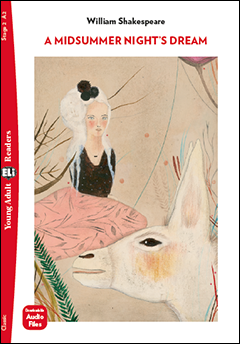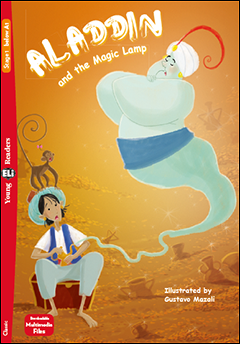
Think of two sibling who were abandoned by their father, a love story ending tragically, and a girl who embarks on a fantasy journey (when she falls down a hole). What stories come to your mind? If you thought of Hansel and Gretel, Romeu and Juliet and Alice in Wonderland, it means these old tales left a mark on you. There is, however, an ongoing debate on why we should keep retelling these stories, considering all the social changes we have been through. This article explores the what, the why and the how of working classic stories in your English classes.
What is considered a “classic”?
In his collection of essays Why Read the Classics? Italo Calvino describes a classic as a book that “never ceases to communicate its message”. In other words, it has the enduring ability to transcend time. Traditional tales, like Little Red Riding Hood or Robin Hood have the power to synthesize core emotions and captivate generations across centuries, evoking both unconscious and conscious connections and providing comfort and familiarity. Besides tales from oral tradition (myths, fables, folk, and fairy tales), classics also include renowned authors such as Shakespeare and Mark Twain as part of the canon. The term classic is also intertwined with the concept of literary canon. Historically derived from religious contexts, in the sense that the work was “canonized”, certain books enter in a group of respected and widely studied works by critics, scholars, teachers or renowned people.
Why adopting classics?
Now, why should we consider bringing classics into our classrooms? Authors Harmer and Puchta, in their influential work on story-based language teaching, emphasize the significance of working with classics as they offer a shared cultural experience, fostering a sense of unity and connection across generations. These stories provide a foundation for language development, enabling readers to engage with well-crafted narratives. In addition, by exploring the themes and motifs present in classics, readers can be encouraged to develop critical thinking skills by analyzing their contexts and questioning social norms.
In a nutshell, providing students with access to classic stories is a way to build and broaden their cultural repertoire and reinforce what makes us human: the capacity to develop and transform narratives.
Aren’t classics outdated?
At this point, you might be wondering: why working with classics that might be seen as unrepresentative, and disconnected from the diverse experience of contemporary students?
Well, culture is a product of a certain time and place, and it is important to give students the opportunity of learning to interpret literature in the light of its context. For example, Charles Dickens, in Oliver Twist, portrays children’s abuse and work exploitation during the industrial revolution in England. The story can spark a stimulating discussion or a project on children’s rights back then and now. As a result, learners can develop a critical attitude, comparing it to today’s context, which may prove to be highly engaging.
Why adapting classics?
Some teachers argue that we should stick to the original texts and forget adaptations. However, depending on the reader’s age and maturity, it may be desirable to offer a more accessible and engaging text for a first experience with a classic. As Ana Maria Machado explains, it is important to provide the opportunity of a first encounter with the classic, with the hope that it can be a captivating experience that leaves a lifetime impression on readers -even if somewhat vague. Later, these same readers can get in touch with the original text and, beyond the plot, enjoy the wonders of an authentic linguistic experience.
Eli has a selection of representative classics, all of them with extraordinary adaptations and stunning illustrations. Some stories have even 2 or 3 different titles to cater for different language levels.
Take a look at some titles below. You can also browse them online.
https://www.elionline.com/english-elt/?idc[0]=400&sort=asc
The twist
Classics hold timeless allure, capturing the essence of human experience throughout history. By embracing and adapting the text of these stories, we can ensure they remain relevant and meaningful to contemporary readers. It might be relevant to mix digital, visual and other media that can turn the classics into something meaningful for them. The twist with the classics could be, for example, asking students to retell Little red Riding Hood taking an Uber to her granny’s and how the story can change. Or creating a “wonderland” in a digital plataform.
Through critical thinking and literary projects, we can bridge the gap between the classics and the present, inspiring new generations to appreciate the power of these timeless narratives and build a solid repertoire of references that will be emotionally as well as culturally enriching for their lives.
To go further
Calvino, I. (2007). Por que ler os clássicos (2nd ed., p. 11). Companhia das Letras.
Harmer, Jeremy; Puchta, Herbert. (2018). Story-based language teaching. Helbling.
Korbey, H. (2019, July 9). The Reading Wars: Choice vs. Canon. Edutopia. Retrieved July 17, 2023, from https://www.edutopia.org/article/reading- wars-choice-vs-canon/
Machado, A. M. (2002). Como e por que ler os clássicos universais desde cedo. Objetiva.













